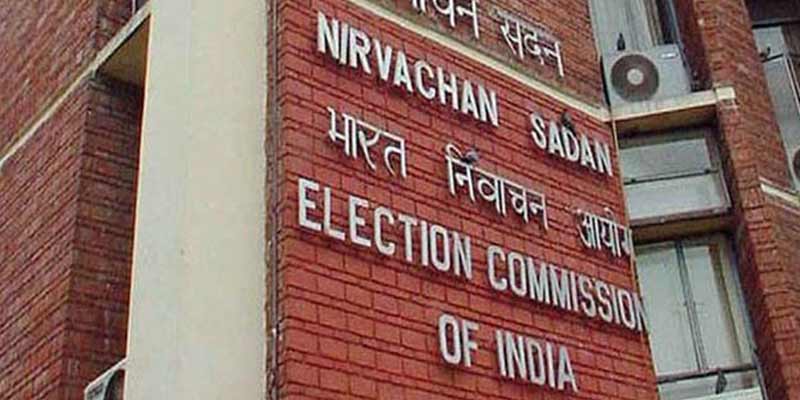- India
- Jun 27
EC begins process for delisting 345 Registered Unrecognised Political Parties
• The Election Commission has started proceedings for delisting of 345 Registered Unrecognised Political Parties (RUPPs) which have failed to fulfil the essential condition of contesting even a single election for the last six years since 2019.
• The offices of these parties could also not be physically located anywhere.
• These 354 RUPPs are from different states and UTs across the country.
Why has the EC taken action against parties?
• It has come to the notice of the Election Commission that of over 2,800 RUPPs, currently registered with it, many have failed to fulfil the essential conditions which are required to continue as an RUPP.
• Following this, a nationwide exercise was conducted by the EC to identify such parties.
• A total of 345 RUPPs not fulfilling certain conditions have already been identified till now.
• Some RUPPs were in the past seen flouting income tax laws and money laundering Act.
• In order to ensure that no party is unduly delisted, the chief electoral officers of respective states and UTs have been directed to issue show-cause notices to such RUPPs following which, these parties will be given an opportunity through a hearing.
• The final decision regarding the delisting of any RUPP will be taken by the Election Commission.
• This exercise has been conducted with the aim of cleaning up the political system and delisting of such parties which have not contested any election to Lok Sabha or Legislative Assemblies of states/UTs or byelections since 2019 and those which could not be physically traced as well.
How is a political party recognised?
• Any Indian citizen who is more than 25 years old and is registered as a voter can contest elections even without forming a party.
• Similarly, associations can also contest elections without getting registered by the Election Commission. They, however, will not be identified as political parties and hence will not be eligible for availing of benefits under the provisions of the Representation of the People Act, 1951.
• Political parties in the country are registered with the EC under the provisions of Section 29A of the Representation of the People Act 1951.
• There are many benefits of registering a party. Firstly, the RPA allows political parties to accept contributions voluntarily offered to it by any person or company other than a government company.
• Apart from this, candidates of registered parties get preference in allotment of election symbols. Other candidates are identified as independents and do not get preference in symbol allocation.
• Registered political parties, in course of time, can get recognition as state party or national party subject to the fulfilment of the conditions prescribed by the EC in the Election Symbols (Reservation and Allotment) Order, 1968, as amended from time to time.
• The recognition of political parties as state party and national party is governed by the provisions of 6A and 6B of the Symbols Order.
• According to the Election Commission, at present, there are six national and 67 state recognised political parties in the country.
Conditions for recognition as a state party
A political party shall be treated as a recognised political party in a state if it fulfils any of the following conditions:
i) The party has to win 3 per cent of seats in the Legislative Assembly of the state in the General Election.
ii) The party has to win one Lok sabha seat for every 25 Lok Sabha seats allotted for the state in the General Election.
iii) The party has to secure a minimum of 6 per cent of votes in a state and in addition it has won one Lok Sabha or two Legislative Assembly seats in elections.
iv) The party has to secure 8 per cent of votes in a state in General Election to Lok Sabha or Legislative Assembly.
Conditions for recognition as a national party
A political party shall be treated as a national party if it fulfils any of the following conditions:
i) Secure at least 6 per cent of votes polled in four or more states in the Lok Sabha or Assembly elections, and, in addition, it has at least four members in the Lok Sabha.
ii) It also has to have at least 2 per cent of the total Lok Sabha seats and its candidates come from not less than three states.
iii) It is recognised as a state party in at least four states.
Both national and state parties have to fulfil these conditions for all subsequent Lok Sabha or state elections. Else, they lose their status.
Manorama Yearbook app is now available on Google Play Store and iOS App Store

